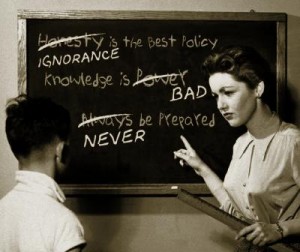Welcome to the Wakefield Doctrine (the theory of clarks, scotts and rogers)
Don’t tell me that this is, like, what the 3rd of 4th Christmas that we’ve been doing the Ten Things of Thankful? I am terrible at remembering the passage of time, (though I’m genuinely gifted at anticipating the passage of time), but it seems like only last Summer that Lizzi started this bloghop. (Though she did not start it in December), the theme of gratitude for the simple things seems to resonate even more as we get towards the end of the calendar.
(…no, Christine! no need to be concerned! lol just the words that are coming out of my keyboard, everything here is fine. …why no, Dyanne, I did not hire a ghostwriter….)(lol)
1) this, the wonderful Christmas Season with love abounding…. (yeah, I am screwing around now… but come on, for a minute there, as you read this… didn’t the hair on the back of your neck start to go up, just a little?)
2) I do appreciate the …er open-mindedness here at the TToT, one of the more inspired things about this little weekly get together is the sense of fun, the willingness to laugh at nearly everything
3) oh! new Readers!! (hey, I may have mentioned this before), but though I’ve gone at length about how this ‘hop is not only one of the best bloghops in the ‘sphere, but is also the best of all the ‘Gratitude blogs’… (yes, I am, in fact, prepared to back that statement up), I’ll bet there’s not another gratitude blog that allows a list to include items of ‘hypo-gratitude’. Well, we do because, sometimes there are weeks when things simply suck. There are times when the negative seems to outweigh the positive. Fact of life. The TToT recognizes this, and if you find yourself at the end of ‘the week from hell’ and think, ‘I better not even try to participate in the TToT, too much bad happened this week‘, allow us to say, ‘hell no! write the words, hypo-gratful or not‘.
4) It was a decent work week, the number of times I remembered to remember that ‘Stress is really Fear, dressed up like a really hot woman’ is increasing, which is an improvement.
5) Have I mentioned the Wakefield Doctrine yet? Actually #4 made me remember how, in the early days of the Doctrine blog, insights were often expressed in totally inflammatory ways.. provocative for it’s own sake, for the fun of it. Gots to get back to that kind of thing in my Posts
6) My co-hostinae, for their patient support of my efforts to learn to write an orderly and coherent 10 Item List
7) Phyllis and Una, of course. They are constants, not in a take-for-granted-way, but more in the ‘in-comparison-to-the-worldview-of-a-clark’ sense. clarks live in a reality that would not be tolerable to a scott or a roger. the reality of a clark is that there is nothing that can be counted on to always remain the same (no, really, sometimes, in the case of the example you’re thinking of, we simply don’t think about the possibility that that would change. ya know?)
8) hey, do enjoy the Friday Night Vidchats… tonight is a little slow but on the plus side, I’m almost done with this Post and it’s not even Saturday
9) be sure to not forget that the Book of Secret Rules (aka the Secret Book of Rules) is there to be used! …try it out, see if you can get away with it….nothing to worry about! (other than the Seven Guard Virgins)
10) done! damn I’ll have the whole morning (5:30 to 9:30am) to do nothing?
11)  Susan Z Surprise Question/Item 11!!
Susan Z Surprise Question/Item 11!!
you have to get up to go to the kitchen and get a drink of water, and let the dog/cat/iguana/goldfish out…
-
what is the time of night that you least hope to show on your alarm clock when you get out of bed?
-
is that clock, like right there next to your side of the bed? or is it elsewhere in the room
-
do you try to wake anyone up (or at least get confirmation that they are still alive) before you get up to go to the kitchen?
Join the Ten Things of Thankful Facebook Group
* no, not just that Lizzi had a scottian friend who nearly dove through the monitor at me, when I first started writing Comments on Considerings, to make sure I wasn’t some kind of creep. Won’t mention any names, other than to say her name rhymes with ‘Kristine’ lol








